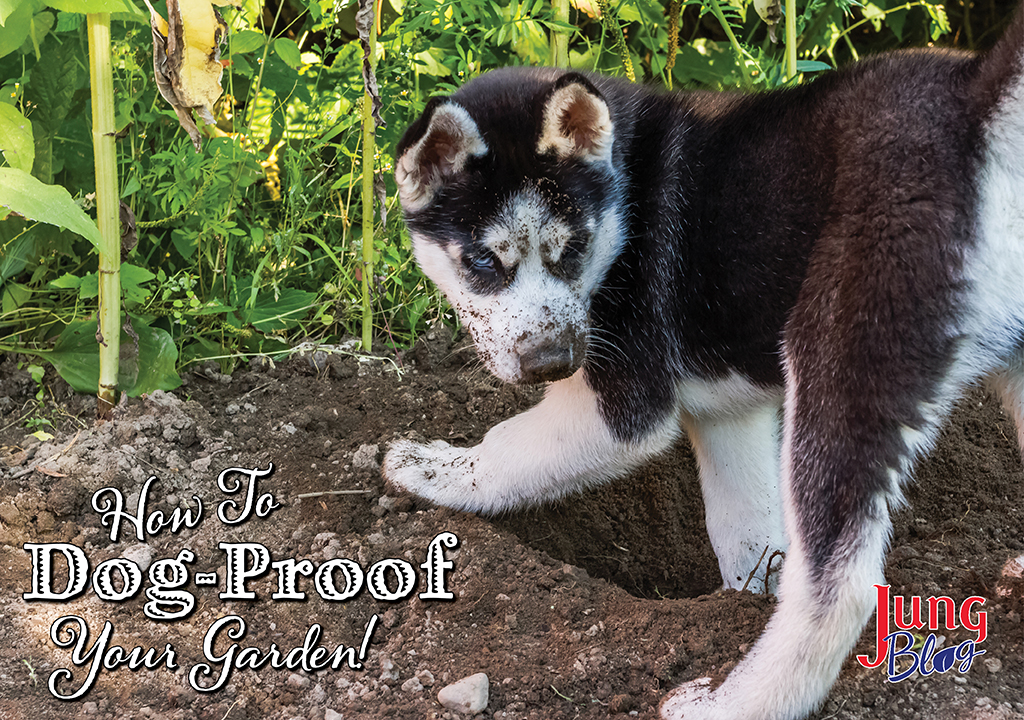
Dogs and gardens don’t always mix, at least according to some gardeners.
If you ask the dogs, they might disagree.
Garden plots, with their range of tempting smells, freshly turned dirt, and population of highly chaseable insects and small animals, offer a veritable playground for a pup, who won’t understand why running through the tall grass is fine, but romping through these much more interesting plants is not.
Plus, after watching their owners digging around in the dirt, your dog may try to socialize by joining in on the fun.
Fortunately, there are ways to indulge these social instincts without compromising your prize vegetables or giving up on gardening entirely.
For dogs that have a working history, like miniature huskies, terriers, or setters, involving them in gardening can help them feel like they have a job to do and scratch a psychological itch these dogs often have when living as pets.
If managed correctly, gardening can be a great thing for both you and your dog.
Toxic Plants
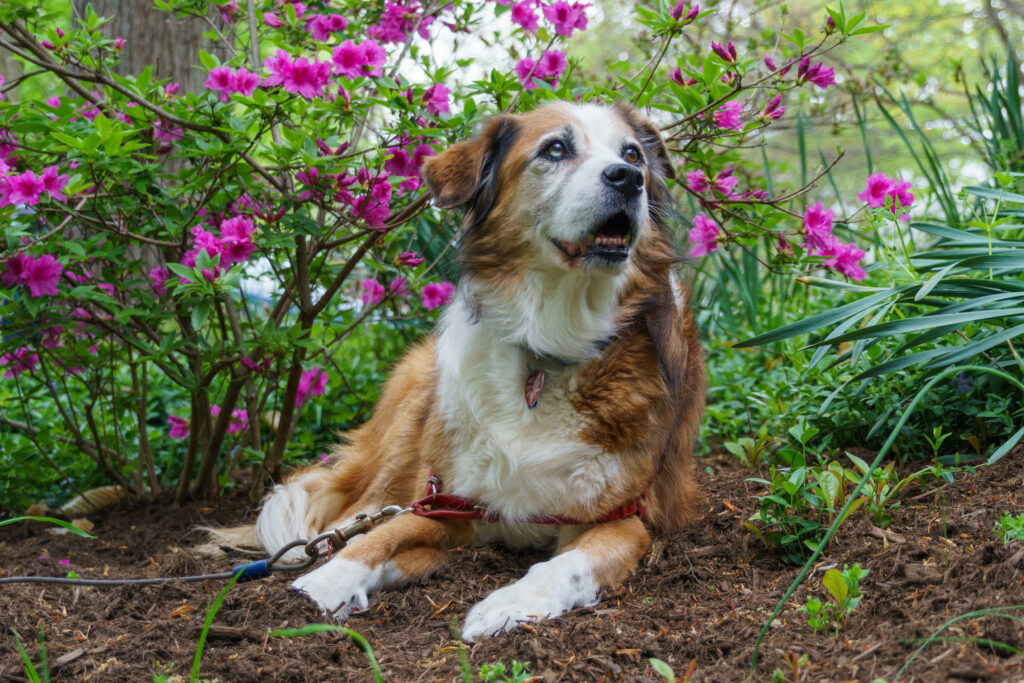
Before discussing protecting your garden plants from dogs, it’s important to note that you should also be protecting your dog from certain garden plants. Many of the plants that humans love for their beauty, fragrance, or flavor can actually be toxic or even deadly to our canine friends.
- Alliums – This is a fancy word for onions, shallots, garlic, leeks, and other similarly pungent plants. The same compounds that give them their enjoyable bite make them unhealthy for dogs.
- Nightshades – Although you may be familiar with deadly nightshade, plants in this family also include seemingly benign tomatoes, potatoes, bell peppers, and blueberries. Unripe tomatoes and tomato greens are the most common offenders for dogs.
- Tulips
- Lily of the Valley
- Rhododendron/Azaleas
- Buttercups
- Chamomile
- Daffodils
- Daisies
This isn’t an exhaustive list, so be sure to check any plant for its effects on dogs before planting. This doesn’t mean you can’t grow these plants, but it’s good to know which plants will be an inconvenience and which will be an emergency if your dog gets into them.
Fencing
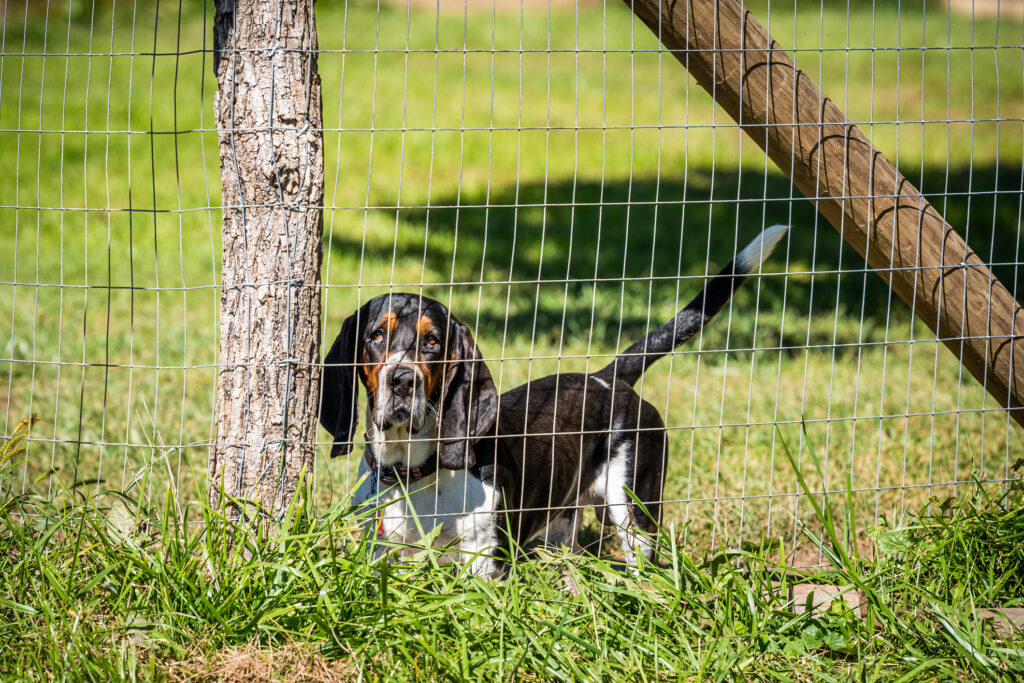
Fencing is the obvious way to keep dogs out of the garden, and it can be quite effective. The key is to make sure your dog can’t either jump over the fence or dig under it. To that end, it’s a good idea to sink your fencing about six inches to a foot underground, especially if you have a digging breed, like a terrier. This will also help keep out other burrowing pests, like weasels and chipmunks. If you have a large dog, chicken wire should do the trick for keeping them out; for smaller breeds, hardware mesh is the way to go. (Hardware mesh will also be effective at keeping smaller pests like rodents out.)
Entertainment
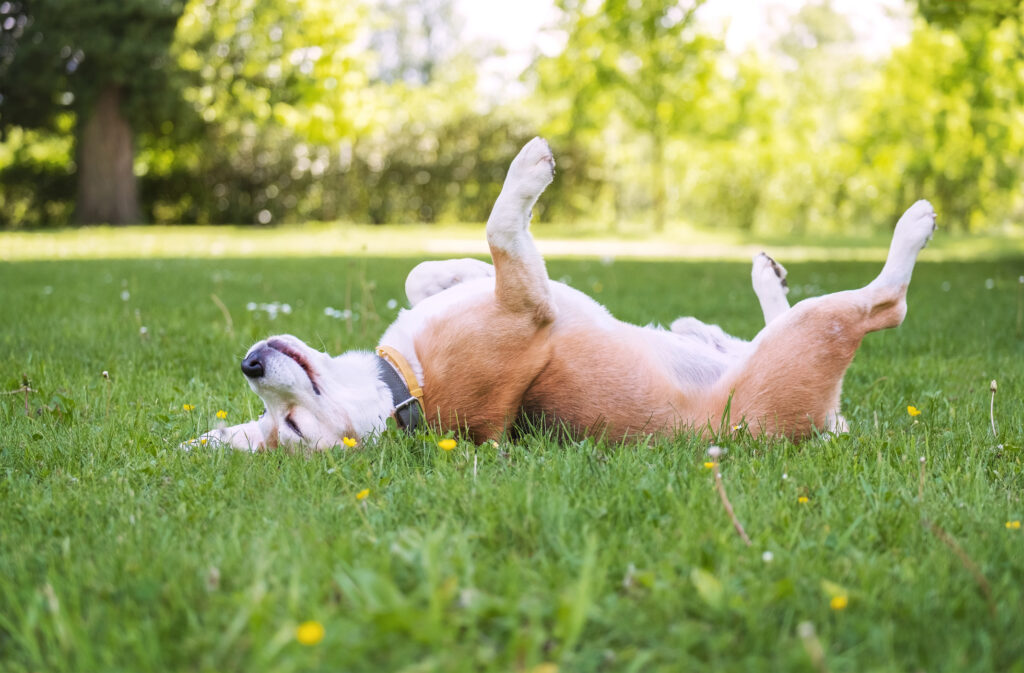
One of the best and easiest ways to keep your dog out of trouble of all sorts is by making sure they’re fully entertained with and stimulated by the things you provide, so they don’t have to go looking for entertainment themselves. What kind of stimulus works best will depend on your breed and also the quirks of your individual dog.
- For hunting dogs, like Irish setters or Labrador retrievers, you can try fetch or other games that stimulate their natural retrieving instincts and high prey drive.
- Herding dogs and especially huskies (even miniature ones) were bred to run fast and far, so making sure they have enough space to do so is crucial.
- Other breeds, like poodles, are highly intelligent and will thrive if offered food puzzles and complex games and tricks to engage their brains.
Of course, every individual dog is different, so you’ll have to learn what your dog likes to do, but the key thing is to give them lots of fun and stimulating options when you’re outside, so they don’t feel the need to go looking for trouble in your flower beds or vegetable plot.
Mirror Plots
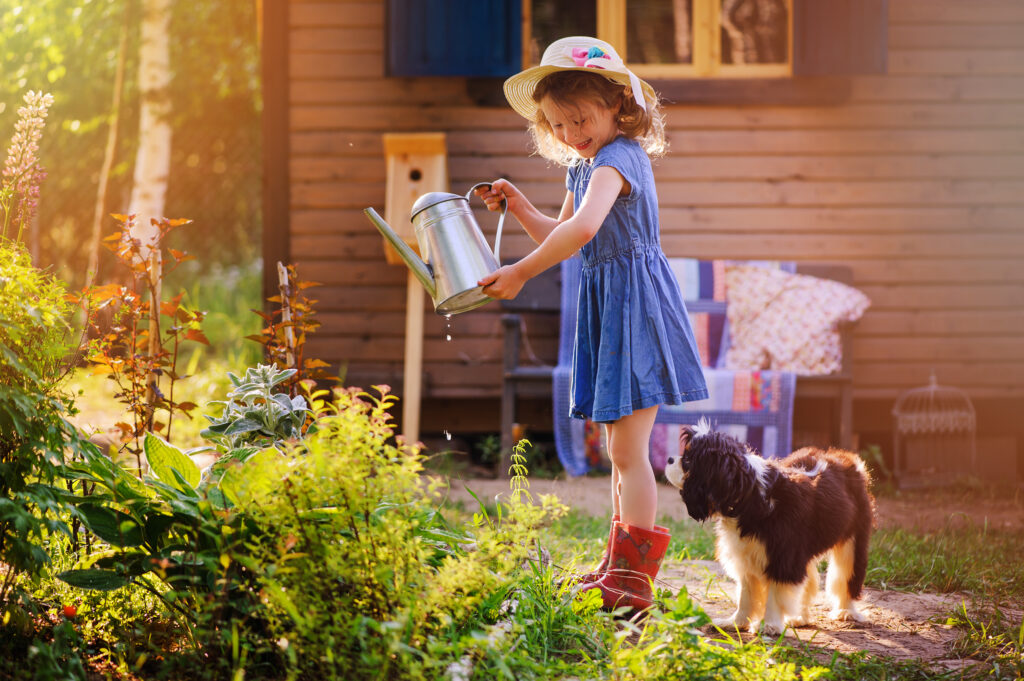
Mirroring is when an animal attempts to form a social bond with its humans by joining in with or copying one of its behaviors. If you’ve ever had a cat curl up on your computer, you’ve experienced mirroring.
Dogs who try to get into or dig in the garden may also be mirroring, and it’s good to allow and even encourage this behavior, as it will help your dog feel socially connected to you and your family. To facilitate this without compromising your plants, you can set up a sort of sacrificial faux garden next to your real garden. It doesn’t really matter what grows there, but if you turn up the dirt and let your dog play in it, they’ll hopefully get their fill of “gardening” with you without ruining your plants.
Pathmaking
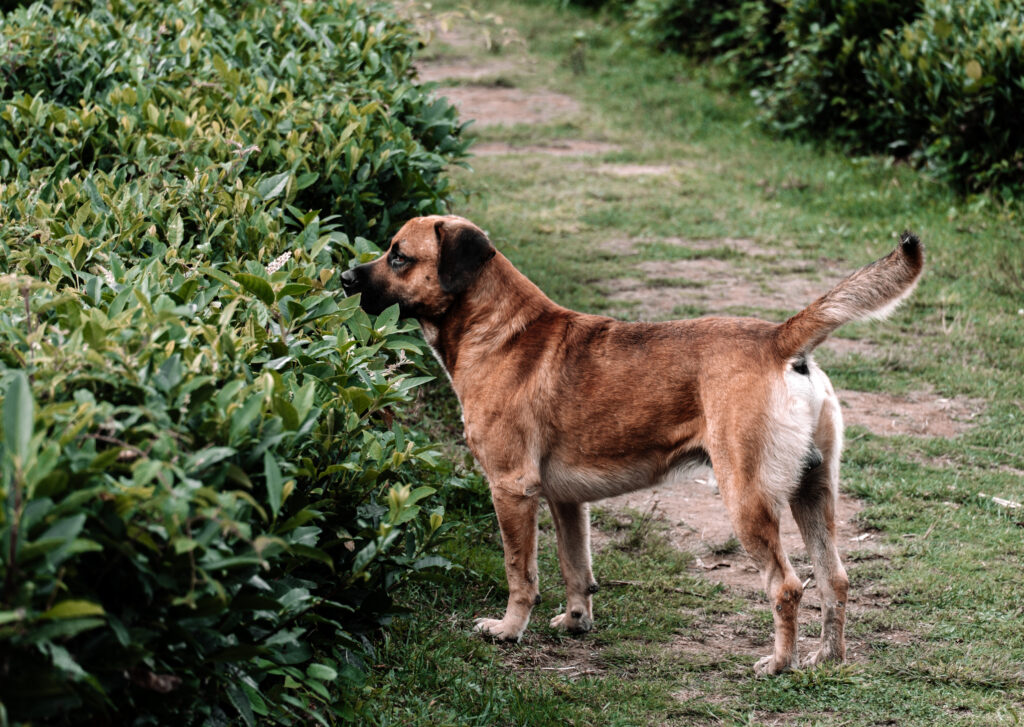
Depending on the layout of your yard and garden, your dog may be getting into the garden simply because it’s the shortest path between Point A and Point B. If you think this might be the case, clear a path through the garden, covering it with turf or rubber garden mats. It might take a bit of training, rewarding your dog with treats and praise whenever they take the path, but eventually, they’ll figure out where they are and aren’t supposed to walk.
Dogs often enjoy gardens, but usually in ways that make it harder for humans to enjoy them. Fortunately, a little thought and planning can easily make your yard a space both you and your dog can love.
Other Recommended Reading
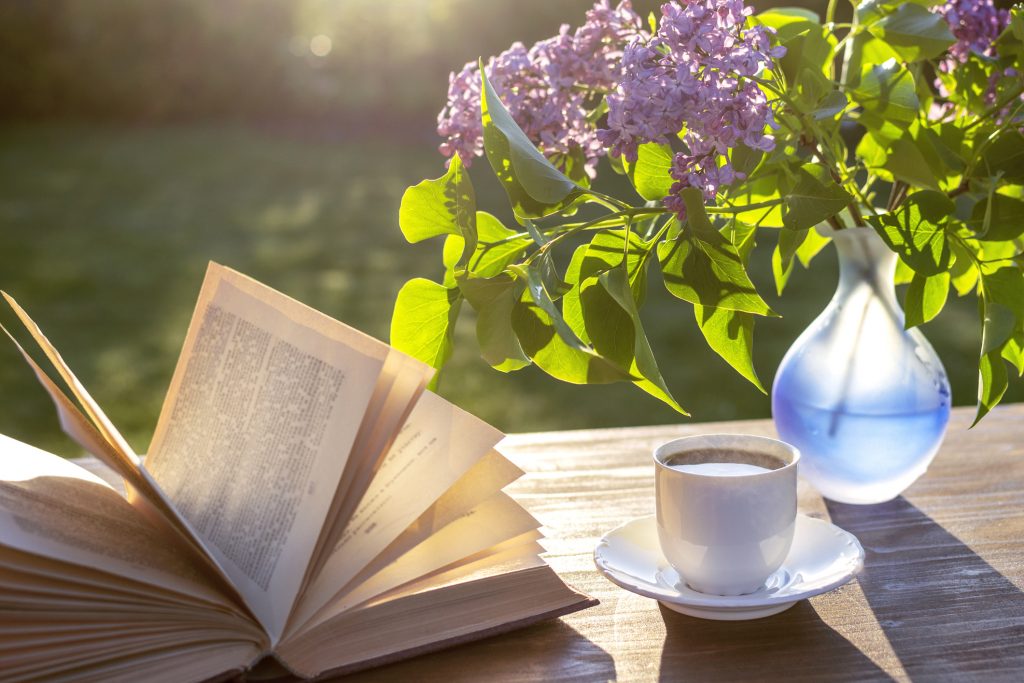
- Six Tips To Create The Perfect Dog-Friendly Garden
- Pet-Friendly Plants & Landscaping For All Seasons
- Gardening With Chickens – Why Chickens And Gardens Just Make Sense
- 5 Things Gardeners Should Know Before Getting A Chicken Coop

At Jung Seed Co, we strive to be your go-to guide for all your gardening needs. Our YouTube channel Jung Garden Center now includes our new video series All Things Green where our experts provide gardening tips for all levels of gardeners. When you need reliable gardening advice, turn to the trusted experts at Jung.
View our new catalog online or browse our website for all of your gardening favorites. To receive info on new products, exclusive deals, and specials, be sure to sign up for our weekly email. Join our Facebook page, to discuss all things gardening!
About the Author: If you are interested in writing an article for the Jung Blog email us at – info@jungseed.com.